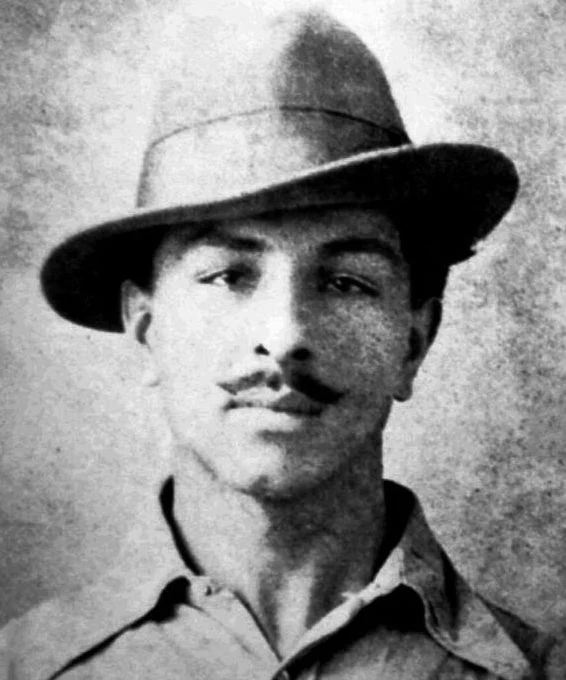
Remembering Shaheed Bhagat Singh: A Hero of India's Freedom Struggle On the 23rd of March 1931, a young and fearless revolutionary laid down his life for the cause of India's freedom. His name was Shaheed Bhagat Singh, a name that continues to inspire generations of Indians and freedom fighters across the world. In this tribute page, we pay homage to the indomitable spirit and unwavering dedication of this great martyr.
Early Life and Radicalization Born on September 28, 1907, in Banga, Punjab, Bhagat Singh was raised in a patriotic family that instilled in him a deep love for his motherland from an early age. As he grew older, he became acutely aware of the oppression and exploitation faced by the Indian people under British colonial rule. The Jallianwala Bagh massacre in 1919 and the emergence of the Non-Cooperation Movement left an indelible mark on young Bhagat Singh's mind. His family's involvement in the freedom struggle further fueled his resolve to fight against the British tyranny.
Courageous Acts of Defiance Bhagat Singh's journey as a freedom fighter was marked by daring acts of defiance against the colonial regime. In 1928, he and his associates plotted to avenge the death of Lala Lajpat Rai, who succumbed to injuries sustained during a protest against the Simon Commission. Bhagat Singh, disguised as "Shaheed-e-Azam" (Martyr of the Nation), threw a non-lethal bomb inside the Central Legislative Assembly in Delhi to protest against repressive laws. This act of protest aimed not to harm anyone but to make a powerful statement against British oppression. Bhagat Singh and Batukeshwar Dutt, his comrade, willingly surrendered and used the court trial as a platform to galvanize public opinion against colonial rule.
Incarceration and Hunger Strike Bhagat Singh, Rajguru, and Sukhdev were eventually sentenced to death for their involvement in the murder of J.P. Saunders, a British police officer. Despite being imprisoned, Bhagat Singh's determination remained unbroken. He went on a historic hunger strike to protest against the inhumane treatment of political prisoners in jail. During this hunger strike, Bhagat Singh's health deteriorated rapidly, but his resolve remained steadfast. His sacrifice drew the attention of the entire nation and put immense pressure on the British government.
Legacy and Inspiration On the 23rd of March 1931, Bhagat Singh, Rajguru, and Sukhdev were hanged in Lahore Central Jail. Their martyrdom was a turning point in India's struggle for independence, and it ignited a wave of patriotism and anti-colonial sentiment across the country. Shaheed Bhagat Singh's legacy is not limited to his courageous acts; it is a testament to his unwavering commitment to the cause of freedom, justice, and equality. He continues to inspire generations of Indians and remains a symbol of bravery and sacrifice.
Conclusion In the annals of India's history, Bhagat Singh's name stands as a shining example of selflessness and dedication to the motherland. His sacrifice reminds us of the importance of freedom and the price that brave souls like him paid to secure it. On this tribute page, we honor Shaheed Bhagat Singh, a true hero of India's freedom struggle, and pledge to keep his spirit alive in our hearts and actions. Jai Hind!